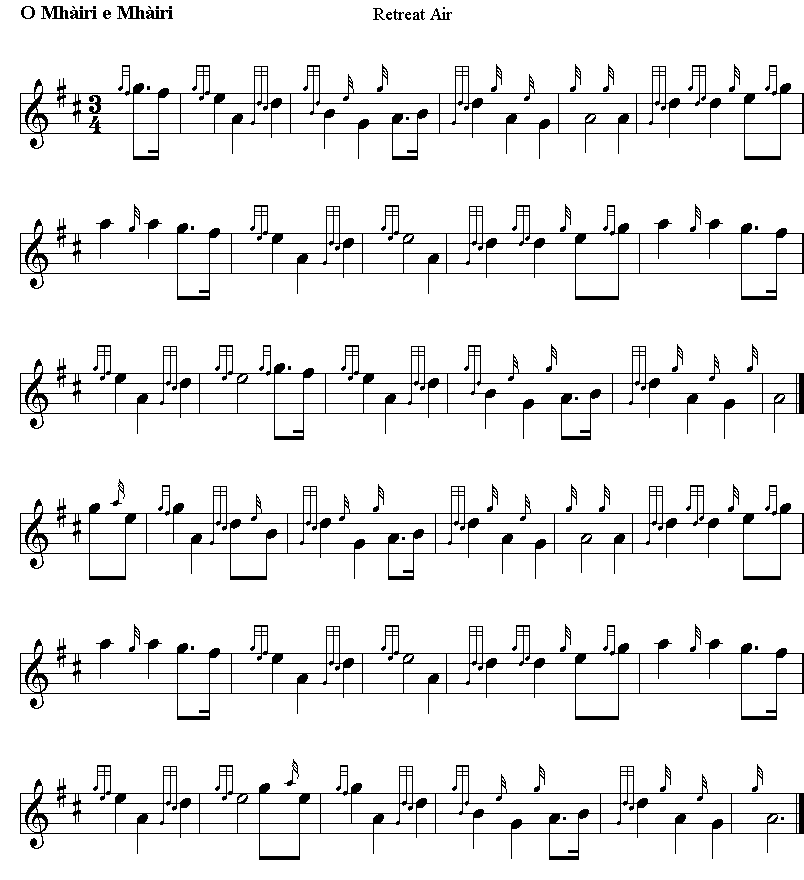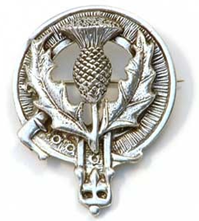|
O Mhàiri, e
Mhàiri (Oh Mary, Mary) was a song popularized by
entertainer Calum Kennedy in the early 60s. During the
1960s and Seventies, for countless listeners and
viewers, Calum Kennedy was the Gaelic singer, known as
“the golden voice of the Highlands”. His was a
hard-earned popularity, as he pursued a gruelling
schedule of road shows, recordings and regular
television appearances, as well as running two theatres.
An expansive figure often clad in full kilt and plaid,
his mellifluous tenor voice took him from the Lewis
croft on which he grew up to singing before the Soviet
leader, Nikita Khrushchev.
Kennedy was
born in 1928 in Orinsay in the South Lochs area of
Lewis, where his father ran a local bus service and the
family home was a focal point in the community, hosting
many a ceilidh, while the music of the wider world
emerged through the first wireless in the village. Calum
would claim in later life that among his earliest
singing experiences, apart from Sunday worship in the
local Free kirk, was calling home the family cow,
Jessie, a practice which certainly developed voice
projection. With Gaelic as his first language, he
attended primary school in Harris then went on to the
Nicholson Institute in Stornoway for his secondary
education.
Leaving
the island to seek work, he spent three and a half years
in the Army then started in accountancy with a Glasgow
firm before setting up his own publishing company. He
was inspired to enter the Glasgow Mòd by his wife, Anne
Gillies, herself a Mòd gold medal winner, and by her
musical family from Skye. He won at the Glasgow event,
then competed in the National Mòd, not winning that year
but going on to win a gold medal in Aberdeen in 1955,
which was presented to him by the Queen.
These
successes settled the direction his career would take
and he started performing throughout Britain and making
the first of many recordings on the Beltona, Decca and
Pye labels that earned gold and silver discs, while
broadening his Gaelic material to include
English-language songs to entertain a broader audience.
In 1957
he joined the Irish actor and singer Richard Harris on a
memorably roistering train journey to Moscow and there
beat several hundred contenders to win the World Ballad
Competition, singing the Gaelic song, O Mhairi e Mhairi.
The trophy was presented to him by the then Soviet
leader Nikita Khrushchev, after which the lad from Lewis
capped his triumph by performing on the stage of the
Bolshoi Ballet.
He and
Anne performed together throughout the country. It was,
however, television that sealed his popularity. He
brought to what was still a relatively new medium shows
such as Calum’s Ceilidh – the first live program
transmitted by Grampian Television – and Round at
Calum’s. With Anne and their five daughters (all named
after songs – Fiona, Kirsteen, Morven, Morag and
Deirdre) he also ran a touring show which took to the
small screen as Meet the Kennedys. Of these daughters,
Fiona has continued in the family tradition as a singer
and broadcaster.
While
maintaining a daunting touring schedule, he further
expanded his stake in show business, buying the Dundee
Palace and the Aberdeen Tivoli theatres and presenting
the likes of Tony Hancock, Frankie Vaughan and Shirley
Bassey.
Kennedy
believed in living life to the full, but things took a
downturn in 1974 when Anne died suddenly after what
should have been a routine operation. Calum became beset
by throat problems and didn’t sing for two years. He
attempted to retire at 51, but demand led to him taking
the road once again. In 1986 he married Christine
Wilson, whom he’d met while recording Songs of Praise,
and with whom he had a daughter, Eilidh.
In 1985
he was the subject of an early version of reality TV
when a BBC camera crew followed a chaotic variety tour
he took round the Highlands and islands. The resulting
documentary, Calum Kennedy’s Commando Course, has
developed cult status.
Critics
may have sometimes carped at Kennedy’s showbiz tartanry,
but his was a voice to be reckoned with. While
popularising songs such as Lovely Stornoway, which he
co-wrote with Bob Halfin, it was his heartfelt delivery
of such great Gaelic songs as Mo Mhathair, Oran na
Caiora and Peigi a Ghraidh and other lyrical material
like Island Moon and, of course, Dark Lochnagar, that
demonstrated his superb combination of natural purity of
voice and formidable vocal technique.
The story
goes that, at his peak he was such a household name that
in 1963, when headlines screamed “Kennedy shot”,
distraught fans assumed it was their favorite singer,
rather than the US president who had been assassinated.
Despite continuing health problems, Calum Kennedy was
still singing at 70, and died in 2006 in Aberdeen, aged
77.
 |



